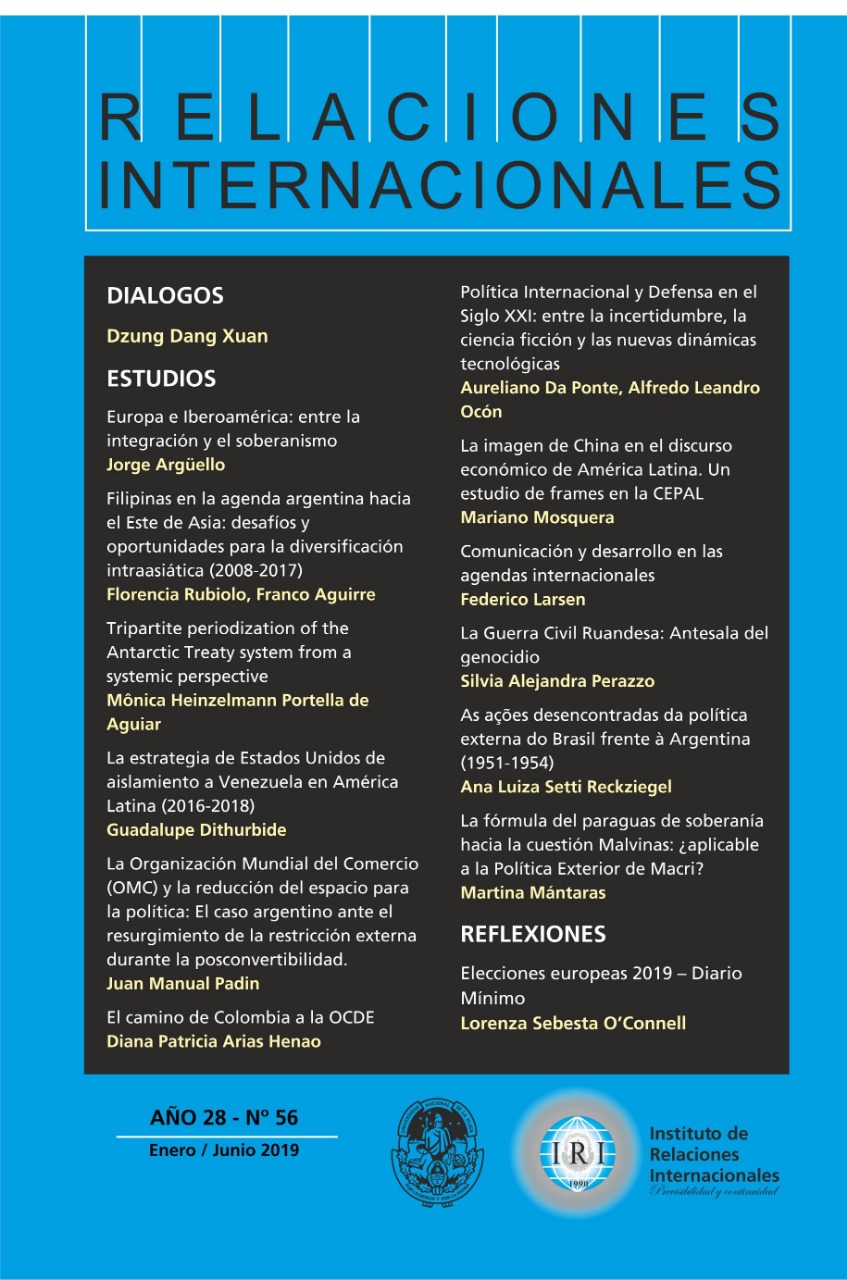The World Trade Organization (WTO) and the reduction in policy space: The resurgence of the external constraint in Argentina during the post-convertibility regime
DOI:
https://doi.org/10.24215/23142766e056Keywords:
WTO, Balance of Payments, External Constraint, Post ConvertibilityAbstract
The birth of the WTO in the mid-1990s shrank the policy space. The narrowed range of policies still available to manage foreign exchange earnings through trade channels before the reappearance of the external constraint in 2011 in Argentina clearly exemplifies this situation. The present paper aims to examine the scope of WTO rules, and evaluate the options offered by the Organization to face a critical balance of payments deficit, basing the analysis on the argentine case.
Downloads
Downloads
Published
How to Cite
Issue
Section
License
Aquellos autores/as que tengan publicaciones con esta revista, aceptan los términos siguientes:
- Los autores/as conservarán sus derechos de autor y garantizarán a la revista el derecho de primera publicación de su obra. A partir de noviembre del 2020 los artículos se publicarán en la revista bajo una licencia Creative Commons Atribución- NoComercial-CompartirIgual 4.0 Internacional (CC BY-NC-SA 4.0). Acorde a estos términos, el material se puede compartir (copiar y redistribuir en cualquier medio o formato) y adaptar (remezclar, transformar y crear a partir del material otra obra), siempre que a) se cite la autoría y la fuente original de su publicación (revista y URL de la obra), b) no se use para fines comerciales y c) se mantengan los mismos términos de la licencia.
Previo a esta fecha los artículos se publicaron en la revista bajo una Licencia de reconocimiento de Creative Commons (BY-SA 2.5). - Los autores/as podrán adoptar otros acuerdos de licencia no exclusiva de distribución de la versión de la obra publicada (p. ej.: depositarla en un archivo telemático institucional o publicarla en un volumen monográfico) siempre que se indique la publicación inicial en esta revista.
- Se permite y recomienda a los autores/as difundir su obra a través de Internet (p. ej.: en archivos telemáticos institucionales o en su página web) antes y durante el proceso de envío, lo cual puede producir intercambios interesantes y aumentar las citas de la obra publicada. (Véase El efecto del acceso abierto).

























